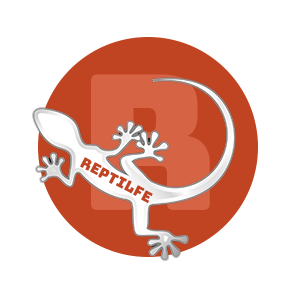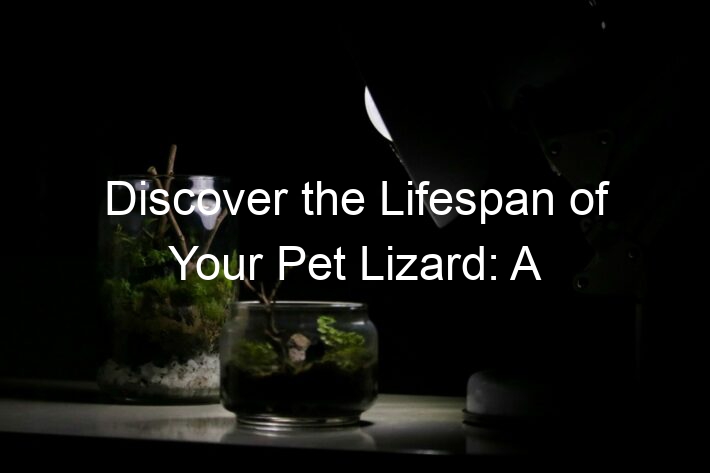Introduction to Bearded Dragon Care
Bearded Dragons, also known as ‘Beardies’, are one of the most popular pet reptiles. They are known for their friendly nature and unique appearance. However, like any pet, they require specific care to ensure they live a healthy and happy life. This guide will provide an introduction to Bearded Dragon care, focusing on the basics and the importance of regular veterinary check-ups.
-
- Understanding the Basics of Bearded Dragon Care
Bearded Dragons are native to the arid, rocky regions of Australia. As such, their care involves replicating this environment as closely as possible. This includes providing a suitable habitat with appropriate temperature and humidity levels, a balanced diet, and plenty of opportunities for physical activity.
Temperature is crucial for Bearded Dragons as they are cold-blooded animals. They require a temperature gradient in their enclosure, with a basking spot at one end and a cooler area at the other. This allows them to regulate their body temperature by moving between the two areas.
Beardies are omnivores, meaning they eat both plants and insects. A balanced diet for a Bearded Dragon should include a variety of vegetables, fruits, and insects. It’s important to note that not all fruits and vegetables are safe for Beardies, so always check before feeding.
Physical activity is also essential for Bearded Dragons. They should have plenty of space to move around in their enclosure, and they also enjoy climbing. Providing branches or rocks for climbing can help keep your Beardie active and healthy.
-
- Importance of Regular Veterinary Check-ups in Bearded Dragon Care
Just like cats and dogs, Bearded Dragons benefit from regular veterinary check-ups. These check-ups can help catch any potential health issues early, before they become serious. A vet can also provide advice on diet and habitat to ensure your Beardie is getting everything it needs.
During a check-up, the vet will typically examine your Beardie’s skin, eyes, mouth, and body condition. They may also perform tests to check for parasites or other health issues. Regular check-ups are especially important for Bearded Dragons, as they are known to hide signs of illness until they are very sick.
Remember, a healthy Bearded Dragon is a happy Bearded Dragon. By understanding the basics of Bearded Dragon care and ensuring regular veterinary check-ups, you can provide your Beardie with the best possible care.
Common Bearded Dragon Health Issues
As a bearded dragon owner, it’s important to be aware of the common health issues that your pet may face. Just like any other pet, bearded dragons can also get sick. Recognizing the signs of illness early can help ensure your bearded dragon gets the treatment it needs promptly.
Recognizing Bearded Dragon Sickness Symptoms
There are several signs that your bearded dragon may be feeling unwell. Here are some symptoms to look out for:
- Changes in appetite or weight: Bearded dragons are usually hearty eaters. If you notice that your pet is eating less than usual or losing weight, it could be a sign of illness. Keep a close eye on their eating habits and weight.
- Abnormal behavior or lethargy: Bearded dragons are typically active and curious creatures. If your pet seems unusually tired, lethargic, or is not showing interest in its surroundings, it could be a sign that it’s not feeling well.
- Physical changes such as skin discoloration or sores: Any changes in your bearded dragon’s physical appearance can be a cause for concern. Look out for skin discoloration, sores, or other unusual physical changes.
Remember, these are just a few of the common symptoms. If your bearded dragon is showing any signs of illness, it’s important to consult with a vet who specializes in reptiles. Early detection and treatment can make a big difference in your pet’s health.
Understanding Specific Bearded Dragon Illnesses
Bearded dragons are generally healthy pets, but they can sometimes get sick. Let’s learn about some specific illnesses that can affect them.
-
- Metabolic Bone Disease
Metabolic Bone Disease (MBD) is a common health issue in bearded dragons. It is caused by an imbalance in calcium, phosphorus, and vitamin D in their bodies. This disease can lead to weak bones, making it difficult for the dragon to move. In severe cases, it can cause deformities and fractures. Regular check-ups and a balanced diet can help prevent MBD.
-
- Respiratory Infections
Respiratory infections are another common illness in bearded dragons. They can be caused by bacteria, viruses, or fungi. Symptoms include difficulty breathing, mucus from the mouth or nose, and loss of appetite. If you notice these signs, it’s important to take your dragon to the vet as soon as possible. Good hygiene and a clean habitat can help prevent these infections.
-
- Parasites
Parasites can also affect bearded dragons. They can be internal, like worms, or external, like mites. Signs of a parasite infection include weight loss, lack of appetite, and unusual feces. Regular vet check-ups can help detect and treat these parasites early.
In conclusion, understanding these specific illnesses can help you take better care of your bearded dragon. Remember, prevention is always better than cure. So, ensure your pet has a balanced diet, regular vet check-ups, and a clean habitat.
Preventing Bearded Dragon Diseases
One of the most effective ways to prevent diseases in your bearded dragon is by ensuring they have a healthy diet. Let’s delve into the importance of a balanced diet and the foods that are recommended for your bearded dragon.
Bearded Dragon Health Guide: Diet
Just like humans, bearded dragons need a balanced diet to stay healthy. The right diet can help prevent a variety of health issues and improve your pet’s overall well-being.
-
- Importance of a Balanced Diet
A balanced diet is crucial for your bearded dragon’s health. It provides the necessary nutrients for growth, energy, and overall health. A diet lacking in essential nutrients can lead to various health problems, such as metabolic bone disease or obesity. Therefore, it’s important to provide a variety of foods to ensure your bearded dragon gets all the nutrients it needs.
-
- Recommended Foods and Those to Avoid
Bearded dragons are omnivores, meaning they eat both plants and meat. They should have a diet consisting of 50% vegetables, 40% insects, and 10% fruits. Some of the best foods for bearded dragons include leafy greens, bell peppers, squash, and insects like crickets and mealworms.
However, there are also foods that should be avoided. These include avocados, rhubarb, and fireflies, which are toxic to bearded dragons. Also, avoid feeding your bearded dragon insects caught in the wild as they may contain pesticides or parasites.
| Recommended Foods | Foods to Avoid |
|---|---|
| Leafy greens | Avocados |
| Bell peppers | Rhubarb |
| Squash | Fireflies |
| Crickets | Wild-caught insects |
In conclusion, a balanced diet is key to preventing diseases in your bearded dragon. By providing a variety of recommended foods and avoiding harmful ones, you can help ensure your pet’s health and longevity.
Bearded Dragon Health Guide: Environment
Creating a healthy environment for your bearded dragon is crucial for its well-being. This involves a proper cage setup and maintaining the right temperature and humidity levels. Let’s delve into these aspects in detail.
- Proper cage setup and maintenance
Your bearded dragon’s cage should be a safe and comfortable space. The cage should be spacious enough for your pet to move around freely. A 40-gallon tank is usually sufficient for an adult bearded dragon. The cage should have a secure lid to prevent your pet from escaping.
It’s also essential to keep the cage clean. Regular cleaning helps prevent the spread of bacteria and other harmful organisms. Remove any uneaten food, feces, and shed skin daily. Perform a deep clean of the entire cage at least once a month using a reptile-safe disinfectant.
- Importance of temperature and humidity control
Bearded dragons are cold-blooded creatures, which means they rely on their environment to regulate their body temperature. They need a temperature gradient in their cage, with a basking spot at one end and a cooler area at the other. The basking spot should be around 95-105°F, while the cooler end should be around 75-85°F.
Humidity is another crucial factor. Bearded dragons come from the arid regions of Australia and are adapted to a dry environment. The humidity in their cage should be kept around 30-40%. Too much humidity can lead to respiratory problems and skin issues.
Use a reliable thermometer and hygrometer to monitor the temperature and humidity levels in the cage. Adjust the heat and humidity as needed to keep your bearded dragon healthy and comfortable.
In conclusion, a proper cage setup and maintaining the right temperature and humidity levels are essential for your bearded dragon’s health. By taking these steps, you can create a safe and comfortable environment for your pet.
Bearded Dragon Health Tips
Keeping your bearded dragon healthy and happy involves more than just providing it with a balanced diet. Here are some essential tips to ensure your bearded dragon lives a long, healthy life.
-
- Regular exercise and mental stimulation
Just like humans, bearded dragons need regular exercise and mental stimulation to stay healthy. Exercise helps them maintain a healthy weight and keeps their muscles strong. Mental stimulation, on the other hand, keeps them active and engaged. You can create a stimulating environment by adding climbing branches, hiding spots, and toys in their enclosure. You can also let them out of their enclosure for supervised exploration time.
-
- Proper handling techniques
Handling your bearded dragon correctly is crucial to its health and wellbeing. Always approach your dragon slowly and gently to avoid causing stress or fear. Use both hands to support its body when picking it up. Never grab it by the tail as this can cause serious injury. Remember, your bearded dragon is a delicate creature and should be handled with care.
-
- Importance of hydration
Hydration is key to a bearded dragon’s health. Despite being desert animals, they still need water to function properly. Provide fresh water in a shallow dish in their enclosure. You can also mist their skin with water to help them stay hydrated. Remember, a hydrated bearded dragon is a happy bearded dragon.
In conclusion, taking care of a bearded dragon involves more than just feeding it. Regular exercise, proper handling, and adequate hydration are all essential to their health. By following these tips, you can ensure your bearded dragon lives a long, healthy life.
Bearded Dragon Disease Prevention
Preventing disease in your bearded dragon is a crucial part of their overall care. By taking proactive steps, you can ensure your pet stays healthy and happy for many years. Let’s explore some of the preventive veterinary care measures you can take.
Preventive Veterinary Care for Bearded Dragons
Just like humans, bearded dragons can benefit greatly from regular preventive care. This includes regular check-ups and vaccinations. Let’s delve into these aspects in more detail.
-
- Regular Check-ups
Regular check-ups are essential for your bearded dragon’s health. These check-ups allow your vet to monitor your pet’s growth, weight, and overall health. They can also detect any potential health issues early, before they become serious problems. It’s recommended to have your bearded dragon checked by a vet at least once a year.
-
- Vaccinations and Deworming
While bearded dragons don’t require as many vaccinations as other pets, they do need to be dewormed regularly. Parasites can cause a variety of health problems in bearded dragons, from weight loss to severe illness. Your vet can provide a deworming schedule that’s appropriate for your pet.
Remember, preventive care is the best way to ensure your bearded dragon stays healthy. By scheduling regular check-ups and deworming treatments, you’re taking important steps to prevent disease in your pet.
Home Care for Bearded Dragon Disease Prevention
Keeping your bearded dragon healthy involves more than just regular visits to the vet. It also requires diligent home care. There are two key aspects of home care that can significantly contribute to disease prevention in bearded dragons: regular cage cleaning and monitoring diet and weight.
- Regular Cage Cleaning
One of the most effective ways to prevent disease in your bearded dragon is by maintaining a clean living environment. This means regular cage cleaning is essential. A dirty cage can become a breeding ground for bacteria, parasites, and other harmful organisms that can cause health problems for your pet.
It’s recommended to spot clean the cage daily, removing any waste or uneaten food. A deep clean, involving the removal and disinfection of all cage items, should be done at least once a month. This routine can help keep your bearded dragon’s environment clean and disease-free.
- Monitoring Diet and Weight
Just like humans, bearded dragons need a balanced diet to stay healthy. Feeding your pet a diet that’s too high in fat or low in essential nutrients can lead to obesity and other health issues. It’s important to monitor your bearded dragon’s diet and weight regularly.
A healthy diet for a bearded dragon should include a mix of vegetables, fruits, and insects. The exact proportions can vary depending on the age and health of your pet, so it’s a good idea to consult with a vet or a bearded dragon care expert.
Regularly weighing your bearded dragon can also help you catch any sudden weight changes, which could be a sign of health problems. If you notice any significant weight gain or loss, it’s recommended to consult with a vet.
In conclusion, regular cage cleaning and monitoring diet and weight are two effective ways to prevent disease in bearded dragons. By incorporating these practices into your pet care routine, you can help ensure your bearded dragon stays healthy and happy.
Conclusion: Maintaining Bearded Dragon Health
In this article, we’ve explored the fascinating world of bearded dragons and the importance of their health. Let’s recap what we’ve learned and understand why ongoing care is crucial for these unique creatures.
-
- Recap of Bearded Dragon Health Problems and Prevention
Bearded dragons can face a variety of health issues, including metabolic bone disease, impaction, and respiratory infections. However, many of these can be prevented with proper care and attention. A balanced diet rich in calcium, regular vet check-ups, and a clean, well-maintained habitat can go a long way in preventing these problems.
-
- Importance of Ongoing Bearded Dragon Care
Consistent care is key to a bearded dragon’s health. This includes regular feeding, ensuring they have access to clean water, and providing a suitable environment with the right temperature and humidity levels. Regular handling can also help them become more comfortable with their human caregivers. Remember, a healthy bearded dragon can live up to 10-15 years, so your commitment is long-term.
Bearded dragons are more than just pets; they are companions that rely on us for their well-being. By understanding their health needs and providing consistent care, we can ensure they live a long, healthy, and happy life.
| Key Takeaways |
|---|
| Bearded dragons can face a variety of health issues, but many can be prevented with proper care. |
| Consistent care, including a balanced diet, regular vet check-ups, and a clean habitat, is crucial for a bearded dragon’s health. |
| A healthy bearded dragon can live up to 10-15 years, so your commitment is long-term. |
Remember, the health and happiness of your bearded dragon are in your hands. With the right knowledge and commitment, you can provide the best possible care for your scaly friend.




